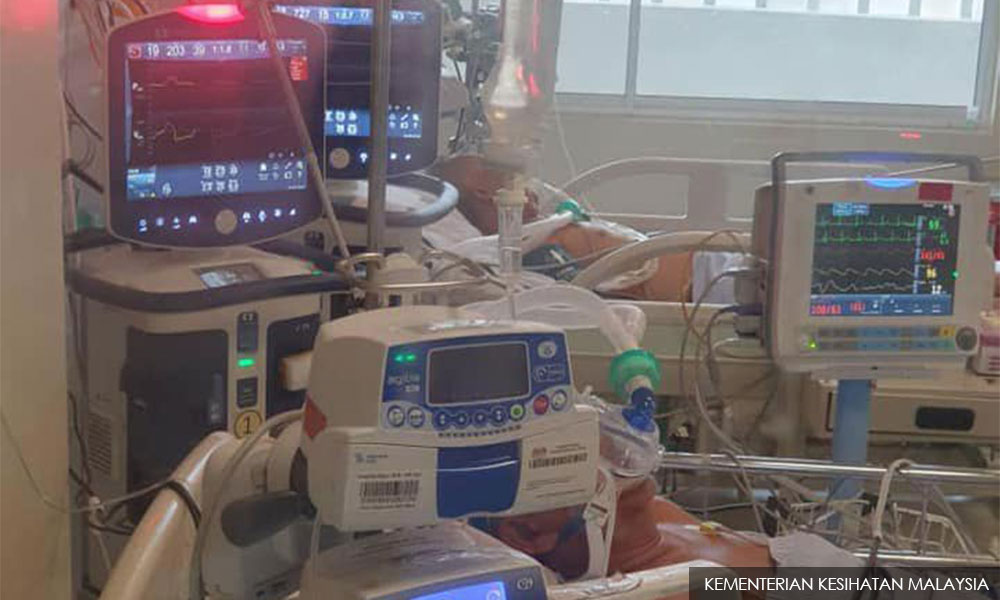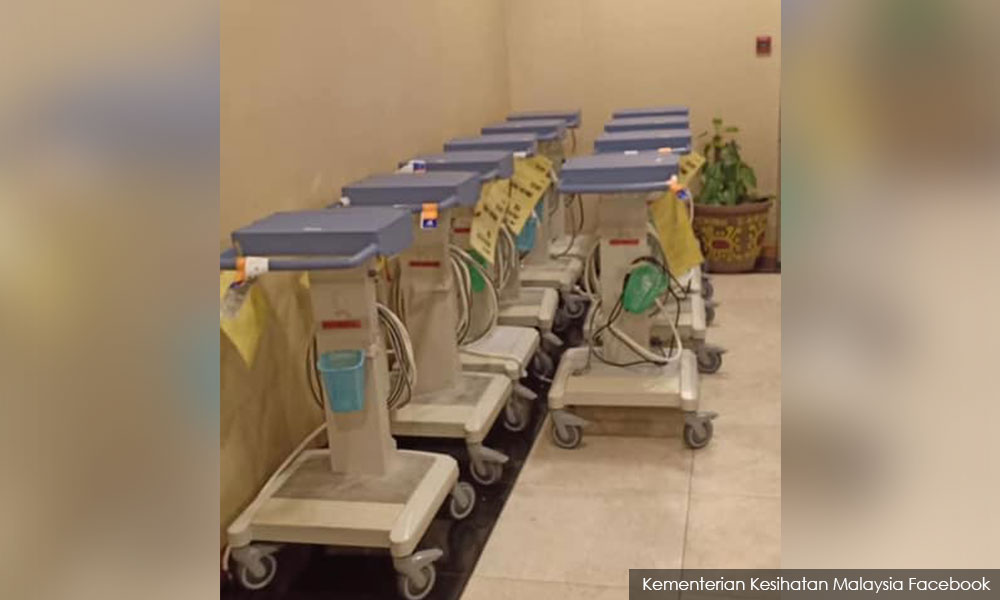News reports on the Health Ministry’s purchase of China-made ventilators during the Covid-19 pandemic in 2020 made the headlines for all the wrong reasons over the past three days.
It also exposed the shortcuts, the weaknesses and the shortcomings in government procurement and in the process, the malaise in the system.
The Public Accounts Committee (PAC) in its report released two days ago said the Health Ministry and Pharmaniaga had been blaming each other for 104 faulty ventilators they received from China.
There was no contractual agreement signed, it said, between the two in regard to the ventilators procurement, where Pharmaniaga's subsidiary Pharmaniaga Logistics Sdn Bhd (PLSB) had acted as an intermediary between the Health Ministry and suppliers in China.
Why? In any transaction, especially one involving millions of ringgit, it must be documented. Surely, there was a process before the order was placed and the money was paid.
There must have been minutes of discussions, government local orders, delivery notes and invoices. What does the paper trail show?
Who decided on what type of machine and who approved it?
The PAC report also revealed that the Health Ministry’s legal adviser was not consulted before the ministry issued a letter to appoint Pharmaniaga.
Why China?
The PAC report revealed that the ministry had ordered 136 ventilators through three suppliers - Entrol (Hong Kong) Trading Ltd, Hong Kong Smart Int Investment Ltd, and Allied King Industrial.
How did the ministry identify these Chinese companies? Were there local agents or did the ministry make the orders after going through a Chinese trade directory?
Ministry officials told the PAC that the idea to seek ventilators from China, at a time when over half of the world was in lockdown, did not originate within the ministry but rather came from then transport minister Wee Ka Siong.
According to meeting transcripts published in the PAC report, Wee (above) was actively involved in every aspect of the procurement process from China.
This included getting contacts, identifying suppliers, presenting quotations, overseeing the transaction, and arranging the transportation of the ventilators to Malaysia.
Then health secretary-general Dr Chen Chaw Min said many ministers provided valuable input during National Security Council meetings, including Wee, whose connection with China and insights into repatriating Malaysians stranded abroad due to Covid-19 lockdowns prompted him to step in and assist in the country’s desperate need for more ventilators.
“He (Wee) gave us a lot of input that if we were to purchase ventilators from China, we would have problems with transportation, which MASkargo could assist. That was where he stepped in.”
Ministry just took the ‘apples’
Of the 136, only 32 of the ventilators had passed the test and certification process after they arrived in Malaysia.

What was more astonishing was the defence proffered by Health deputy secretary-general (finance) Norazman Ayob, who said it was a case of the suppliers delivering them products that the ministry did not order.
But what did the ministry do? It decided to do nothing – zilch - keep it stored for the records if the auditor-general decided to come calling.
“Based on the specifications, which I believe PLSB gave to the suppliers... but when the ventilators arrived, they were not what we ordered.
“This is not an issue of Health Ministry facilities. (Instead), it is an issue of... we placed an order to get an apple, (but) we got something else,” Norazman told the PAC committee.
Pharmaniaga chief operations officer Mohamed Iqbal Abdul Rahman reportedly told a proceeding on Sept 14 that the contract for the ventilators’ procurement was supposedly between the Health Ministry and the suppliers.
“The contract is between the ministry and suppliers. Pharmaniaga will be the forwarding agent and will be the recipient in the country,” he said in response to a question by PAC member Syahredzan Johan.
There was also no contract made between Pharmaniaga and the suppliers in China, according to the report.
This was not buying kacang putih (chickpeas) or cendol ikat tepi (takeaway) from a roadside stall but life-saving equipment costing millions of ringgit from manufacturers.
If this man or any other ministry official had been delivered a faulty refrigerator to their homes, they would have called the dealer to replace it and sent it to the manufacturer, or demanded a full refund and if it was not forthcoming, the Consumer Tribunal would have been the recourse.
Rakyat’s money and lives gone
In the case of the ventilators, the money did not come from their pockets. It came from the government (read: taxpayers). So why worry?
How many lives could have been saved if not for the debacle (and that's putting it mildly)?
In July 2021, Free Malaysia Today quoted a doctor as saying that all the Kuala Lumpur Hospital’s eight wards were full and there were not enough ventilators to go around, adding that some medical officers had to “play God” by deciding who should be given ventilators first.
Understandably, at that time the demand far exceeded the supply and everyone was trying to get their hands on ventilators. The ministry probably had little option.
However, a simple due diligence exercise by checking the background of the suppliers and liaising with other countries would have prevented the purchases of faulty ventilators.

Hungary, for example, was saddled with the same issues and the ongoing inquiry into similar purchases in England has revealed similar problems.
Missing accountability
However, it appears that the ministry undertook the exercise without any checks of the histories of the suppliers.
In June this year, the Health Ministry said it was not taking action over the supply of defective ventilators.
In a written Dewan Negara reply, Health Minister Dr Zaliha Mustafa said that this was because the emergency procurement of the ventilators had followed protocols set by the Finance Ministry.
Really? Did the protocols not require a contract to be vetted by the legal adviser? Did they allow ministry officials to order and purchase anything they liked?
Besides, were local intermediaries (read: rent collectors) involved in these transactions? Shouldn’t they be held responsible?
The PAC report has raised more questions than what the ministry answered.
The ministry must come clean. The conduct of those involved in the procurement process has come under a cloud. The finger-pointing has not helped either.
But it is not the first time that Malaysians have learnt about such indiscretions and imprudence. Like previous cases, it will be swept under the carpet until another incident surfaces. As in the past, silence will be the golden rule. - Mkini
R NADESWARAN is a veteran journalist who writes on bread-and-butter issues. Comments: citizen.nades22@gmail.com.
The views expressed here are those of the author/contributor and do not necessarily represent the views of MMKtT.




No comments:
Post a Comment
Note: Only a member of this blog may post a comment.